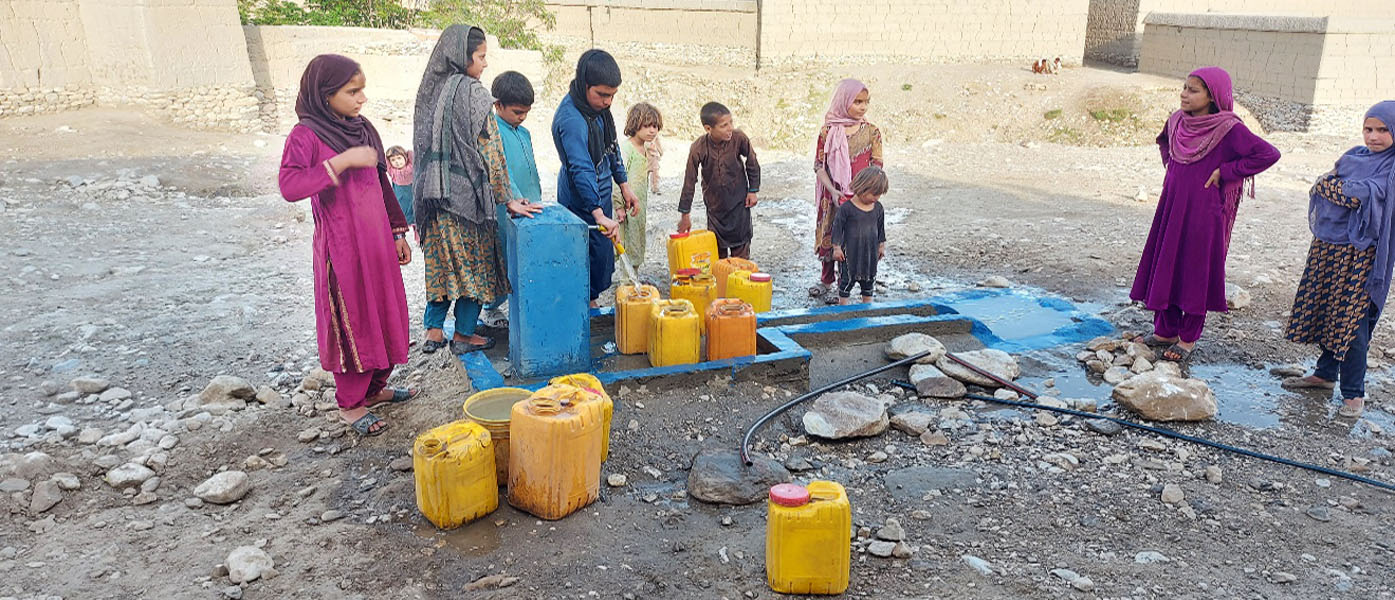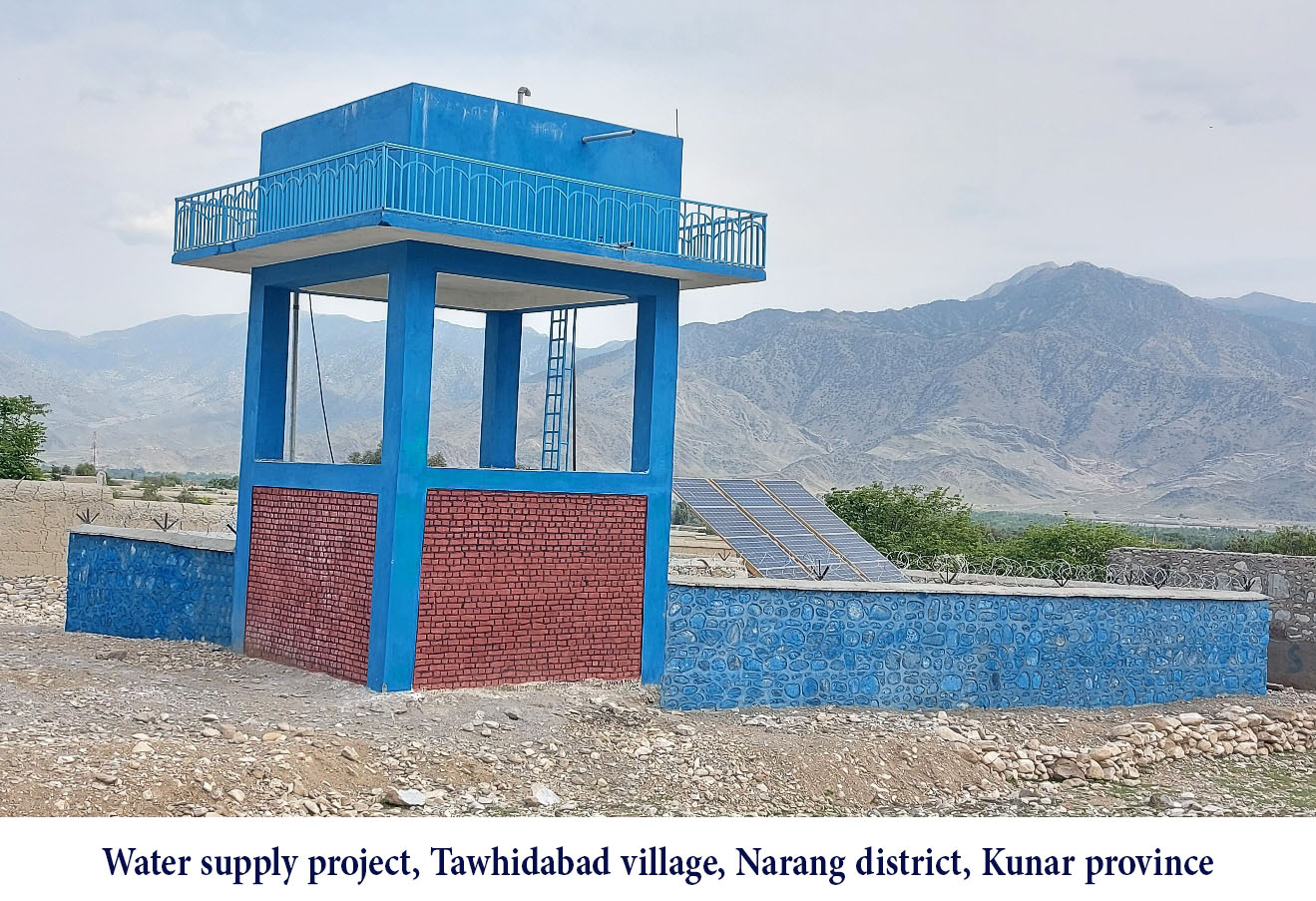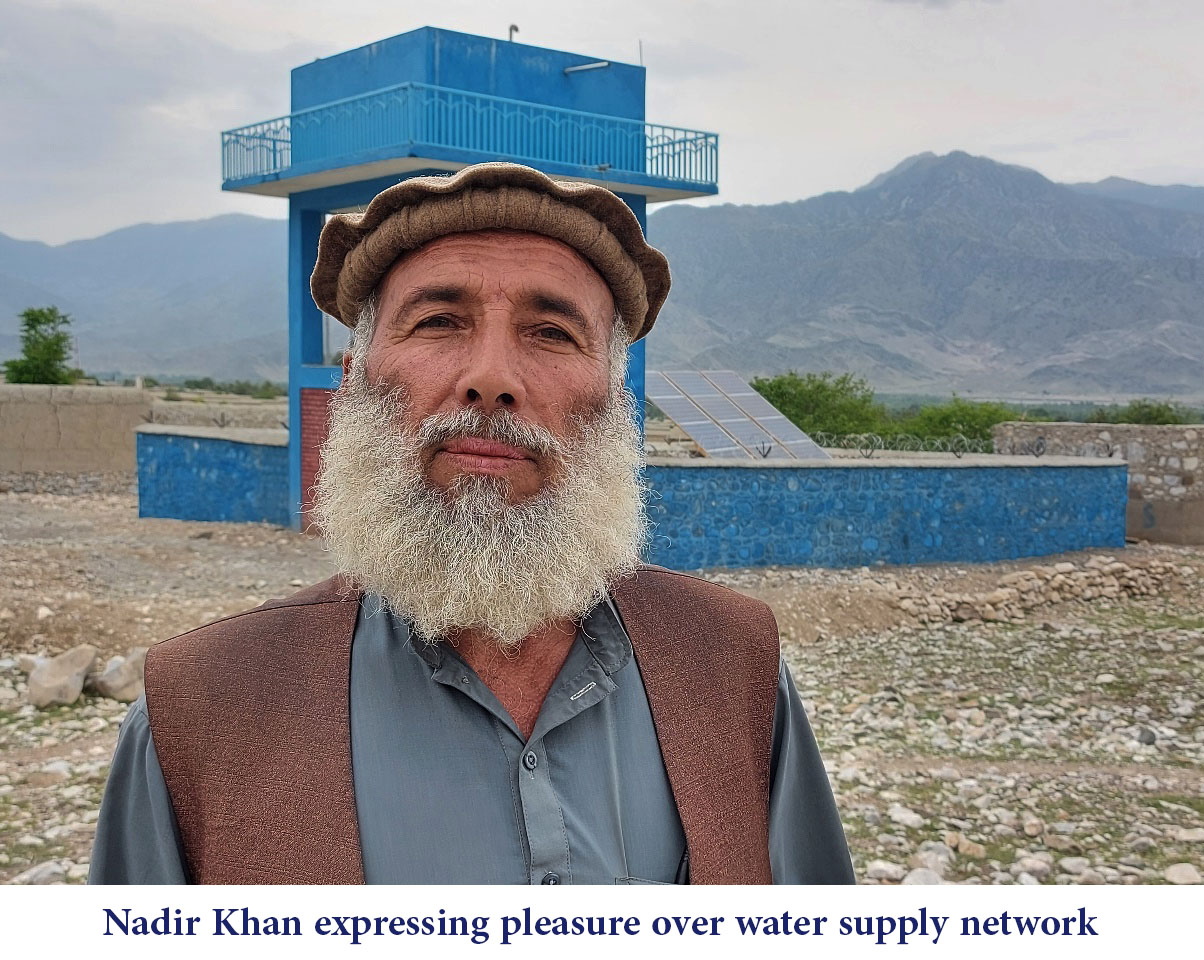
“We Used to Drink Motionless Water from Ponds”
The Tawheedabad village consisted of 277 households is located near a series of mountains in Narang district of Kunar province. The heat of sun over here is as strong as the residents of this community are looking quite different from those living in neighboring communities. Safe drinking water has been one of the top priorities in addition to other difficulties that the villagers had in terms of meeting basic human needs in this community over the past years.

Fortunately, after the Citizens’ Charter National Priority Program of the Ministry of Rural Rehabilitation and Development (MRRD/CCNPP) covered this community and stablished the Community Development Council (CDC), the villagers through their CDC gave top priority to the construction of a much-needed water supply network that has now addressed the challenges of access to clean drinking water. The water supply network project worth AFN 3.7 million including 10% community contribution (financial, labor or in-kind) is consisted of an overhead water storage tank with a volume of 35,000 cubic meters, a deep well, a pipe scheme, several solar panels and installation of 15 taps in several locations in the community. Completion of this project with financial and technical support of CCNPP has provided an opportunity for the residents to access healthy drinking water right in front of their houses.
Nadir Khan 62 years of age is a resident of Tawhidabad village. He says that they used to utilize the rain water for drinking and washing purposes that they were collecting in a pond over the past years. “Our cattle including cows, bulls, oxen, buffaloes and calves also drank water from the same pond. When there was not enough rain to accumulate water in the ponds, we had to fetch water on our heads and backs from the river, flowing some 5 km away from our community.”

The villagers expressed that the use of both rain and river water caused numerous diseases in villagers. Most of the households had to leave the village and settled elsewhere due to severe shortage of safe drinking water. They are thrilled that the Citizens’ Charter intervention has raised hopes of survival in this community.
Hayatullah 36, another villager said: “Our children and women had to cover a long distance by foot to bring water in casks and buckets from other villages and the river, located far away from our community.” He added that since the river water was contaminated and full of silt, it would usually cause diseases such as diarrhea and dysentery in children and kidney stones in adults. Using the water from the water supply network has led to a considerable decline in certain diseases in our community.
The water supply project has also helped some employment generation in Tawheedabad village. During the construction work, a total of 1,246 labor days have been created for both skilled and unskilled local laborers.
So far, the MRRD/CCNPP has been able to complete 2,881 projects in Water Supply Sector while another 1,980 are ongoing in as many as 123 districts across the country. On a daily basis, more than two million villagers receive nearly 50 million liters of potable water through 20,000 water points, installed inside communities. Meanwhile, more than 16 million labor days have so far been generated only in Water Supply Sector for both skilled and unskilled laborers during the implementation of projects.
×
![]()